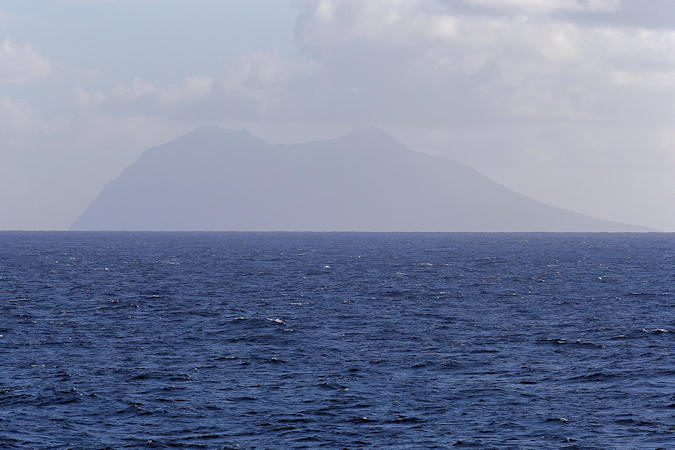Northern Mariana's
Things to DO
Outher Islands
The Outer Islands run over a distance off about 590 km north of Saipan. They are all small rugged volcanic islands.
Farallon de Medinilla is an uninhabited small island located 83 km north of Saipan. For years this
island is used as a bombing and gunnery target by both the US navy and air force. In 2002 the negative
impacts of military activities on local fauna and flora marked the end of that period.
Anatahan located 60 kilometers northwest of Farallon de Medinilla has one of the most active volcanoes
of the archipelago. In april 1990 all 21 residents were evacuated to Saipan following an earthquake that measured
7.4 on the Richter scale and signs that a volcanic eruption might be imminent, but no eruption occurred at that
time. A further earthquake swarm occurred in May 1992. The first historical eruption of Anatahan occurred in May 2003,
when a large explosive eruption took place forming a new crater inside the eastern caldera and causing an ash
plume 12 km high which impaired air traffic to Saipan and Guam.
Sarigan, Guguan and Alamagan are beeing recognised as an Important Bird Area because
they supports populations of Micronesian Megapodes, White-throated Ground Doves, Sooty Terns, Spectacled Tern, Micronesian
Myzomelas and Micronesian starlings.
 |
|||||
Pagan, located about 320 kilometers north of Saipan is the fourth largest island of the Northern Mariana's.
The island is a double island consisting of two stratovolcanoes joined by a narrow strip of land with a width of only
600 meters. The southern volcano is 548 m high with a caldera approximately 4 km in diameter. Although several fumaroles
were active in 1992, the southern volcano last erupted in 1864.
Following weeks of seismic activity, the northern volcano errupted in may 1981, covering almost half of all the arable land
with a coating of lava. All 54 residents were evacuated and ongoing seismic activity has prevented parmenent resettlement.
Agrihan, located 62 kilometers north of Pagan is a massive stratovolcano. With a hight of 976 m, its summit is the
highest point in Micronesia. Due to increased volcanic activity, the islanders were evacuated in August 1990 when an
eruption was feared. However, by 1992, although there were 25 fumaroles, a boiling hot spring and several steam vents,
no eruption had taken place.
The uninhabited Asuncion, Maug Islands and Farallon de Pajaros are beeing recognised as an Important Bird Area